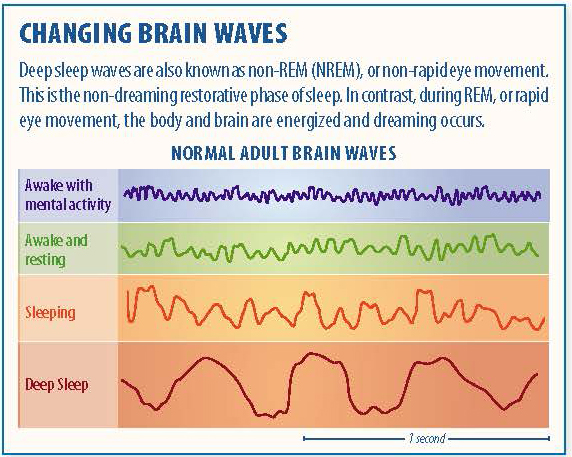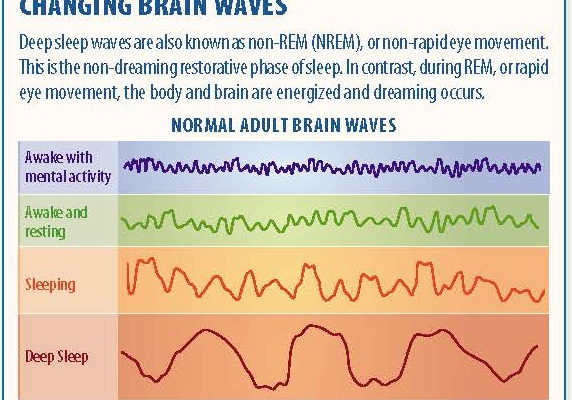Deep Sleep Enhances Memory
For many older adults, a good night’s sleep may seem like the final frontier, a place longed for each night but often out of reach. Common sleep stealers include frequent trips to the bathroom, the inability to fall and stay asleep, and constant awakenings caused by sleep apnea.
Sleep, no matter how old you are, remains a requisite for good physical and mental health. Of utmost importance to the brain is quality of sleep and something sleep experts call slow-wave or deep sleep.
“We know that memory consolidations occur when we are spending more time in deep sleep,” says sleep specialist Alon Y. Avidan, MD, MPH, Director of the UCLA Sleep Disorders Center. “We evaluate patients for potentially treatable sleep conditions, such as sleep apnea, so that we can improve sleep quality and consequently memory in older adults.”
Sleep Apnea and Older Adults
Being male, over age 40, and overweight are three common risk factors for obstructive sleep apnea (OSA), the most typical form of breathing abnormality during sleep. But as explained by Dr. Avidan, older adults of normal weight can and do have sleep apnea. “With age, there are specific changes that occur to the anatomy in the back of the throat that cause them to become more collapsible when lying flat,” he explains. “A primary factor for women is the decline of the hormones progesterone and estrogen, which up until menopause serve a protective function against sleep apnea. Progesterone, for example, is a respiratory stimulant, and during menopause, women lose its “shielding” effect, become more venerable to sleep apnea, and begin to catch up with their male counterparts.”
Tips to Improve Nightly Slumber
As easy as it may be to pop a pill, sedating the brain isn’t the answer. Natural sleep is. It may take some time to develop better sleep habits, but your body and mind will be more refreshed. Here are a few tips:
- Avoid excessively bright light, especially blue light from computers, cell phones, and tablets.
- Keep the room cool. Less than 68 degrees can help trigger the production of melatonin (the body’s own natural sleep hormone).
- Deep, slow breathing can be particularly effective in helping your mind and body relax.
- Keep a regular sleep schedule: Go to sleep and wake up at about the same time each day.
- Avoid caffeine and alcohol at least four hours before bedtime.
The gold standard for treatment is continuous positive airway pressure (CPAP), a mask-like device that opens the airways and delivers continuous air. Not only does daytime sleepiness improve, snoring abate and deeper sleep return, but the urge to urinate at night can also go away. “Because OSA can stimulate a hormone that triggers the production of urine at night, when we treat the sleep apnea we find that sleep is less disrupted due to reduced nighttime awakenings to urinate,” says Dr. Avidan.
Lack of Slumber Affects Overall Health
Researchers from UC Berkeley recently reported in the journal Neuron that the unmet sleep needs of the elderly elevate their risk of memory loss and a wide range of mental and physical disorders.
“Nearly every disease killing us in later life has a causal link to lack of sleep,” says the article’s senior author, Matthew Walker, a UC Berkeley professor of psychology and neuroscience. “We’ve done a good job of extending life span, but a poor job of extending our health span. We now see sleep, and improving sleep, as a new pathway for helping remedy that.”
Sleep and Your Brain
If you can’t fall asleep, get up and go into another room. Make some chamomile tea and read a book. Dr. Avidan recommends a slightly boring book.
Developing good sleep habits benefits health in many ways: It nourishes the brain by filtering proteins and waste products through the glymphatic system, bolsters the immune system and helps re-charge the brain. On the flipside, poor sleep can exacerbate existing issues, such as depression, anxiety, and pain—making them even more difficult to treat. If you have struggled with sleep for more than a month, consult with your doctor. It might be time to be referred to a sleep specialist.

The post Deep Sleep Enhances Memory appeared first on University Health News.
Read Original Article: Deep Sleep Enhances Memory »
Powered by WPeMatico


